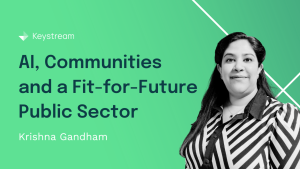08.08.2023
The Critical Role of Super Users and Champion Users in NHS EPR Implementations
Introduction
The success of any Electronic Patient Record (EPR) implementation within the NHS largely rests on the engagement and expertise of its users. Super Users and Champion Users play critical roles, and when utilised effectively, can significantly influence the success of an EPR implementation. This article examines their unique roles and the ‘gold standard’ approach to capitalising on their potential.
Super Users
Super Users are staff members who receive in-depth training on the EPR system. They have a comprehensive understanding of the system’s functionalities and workflows that are relevant to their departments. As the first port of call for users within their department who need assistance with the system, they are a key resource.
In the gold standard approach, Super Users are involved far in advance of go-live. They undergo detailed training and become an integral part of the system’s roll-out. Attending training and awareness events on a regular basis, ideally once a week for at least six months prior to go-live, ensures they are well-acquainted with the system and ready to provide effective help to their peers, leading to a smoother transition.
Super users should also have the opportunity to support trainers in the classroom, adding important context and empathy in a classroom environment.
Recruiting the Right Super Users
An often-underestimated factor in successful EPR implementation is the careful recruitment of Super Users. Line managers across the organisation should nominate their most capable staff for this role. These individuals not only need to be keen on becoming Super Users, but they must also possess the necessary IT and digital literacy skills required for the position. Getting the right people onboard from the outset can make a considerable difference in the effectiveness of the Super User role.
Champion Users
Champion Users are advocates for the new system. Although well-versed in the EPR system, their role is distinct. They promote the benefits of the new system, encouraging their colleagues to embrace the change. Their primary task is to create a positive mindset towards the EPR implementation and working with the change team to tackle resistance to change.
Like Super Users, Champion Users should be integrated into the process early on. Their enthusiasm and promotion of the system will be instrumental in persuading other users to engage in training and adopt the new system.
The Importance of Both Roles
Both Super Users and Champion Users play pivotal roles in the EPR implementation. Super Users ensure that staff can navigate the EPR system effectively, minimising disruption to patient care during and after go-live. On the other hand, Champion Users foster a positive environment conducive to change, smoothing the adoption process.
Redefining the Super User Role
Conventionally, Super Users are only afforded an extra session or two of training, which frequently proves insufficient for them to support their colleagues fully at go-live. This limited training, coupled with their routine workload, often leads them to become ‘shrinking violets’, unable to provide the level of support required.
This is why it’s crucial to rethink the traditional approach. Making Super Users supernumerary at go-live allows them to focus solely on their role as Super Users, enhancing their effectiveness and ensuring they can offer full support when most needed.
Conclusion
The roles of Super Users and Champion Users are integral to a successful EPR implementation. By investing time and resources into their early training and involvement, NHS organisations can ensure a smoother transition to the new system, resulting in more efficient workflows and improved patient care. The gold standard approach, where Super Users and Champion Users are nurtured and empowered, is transformative for EPR implementations in the NHS.
Furthermore, this approach leaves a legacy of support post go-live. Long after contracted external subject matter experts have left the programme, a key group of knowledgeable, capable Super Users and Champion Users remains. They continue to drive user engagement, provide system support, and ensure efficient operations. Their ongoing involvement supports system maturity and optimisation, demonstrating that the investment in Super Users and Champion Users is not just for the implementation phase – it’s for the system’s future.






